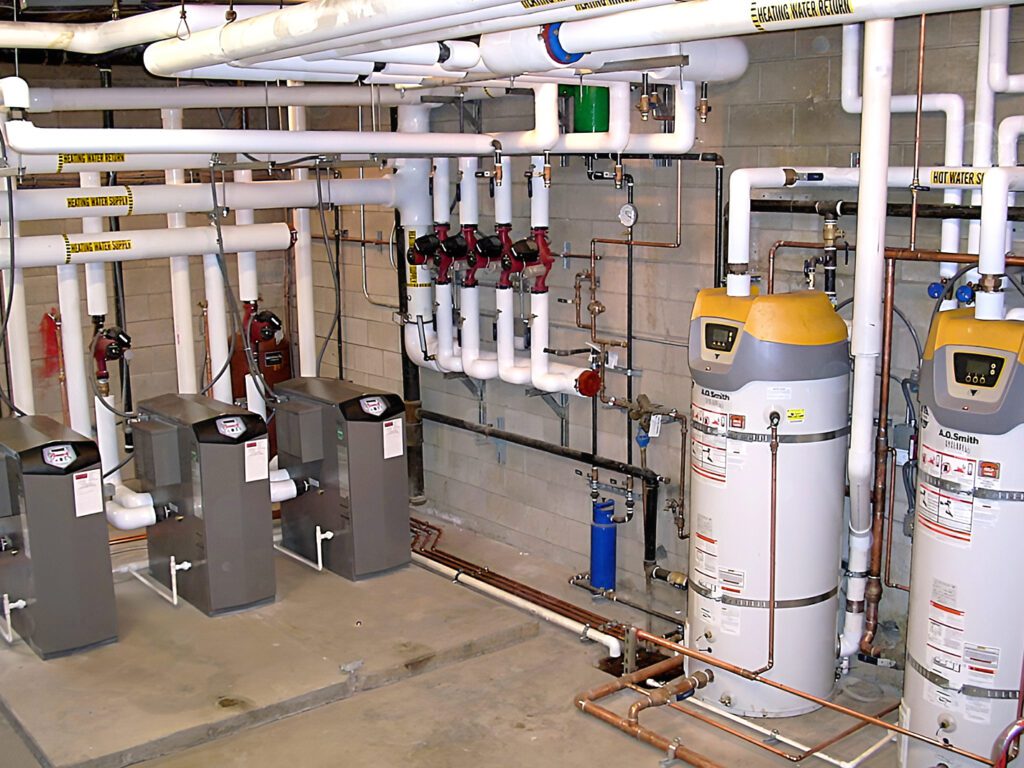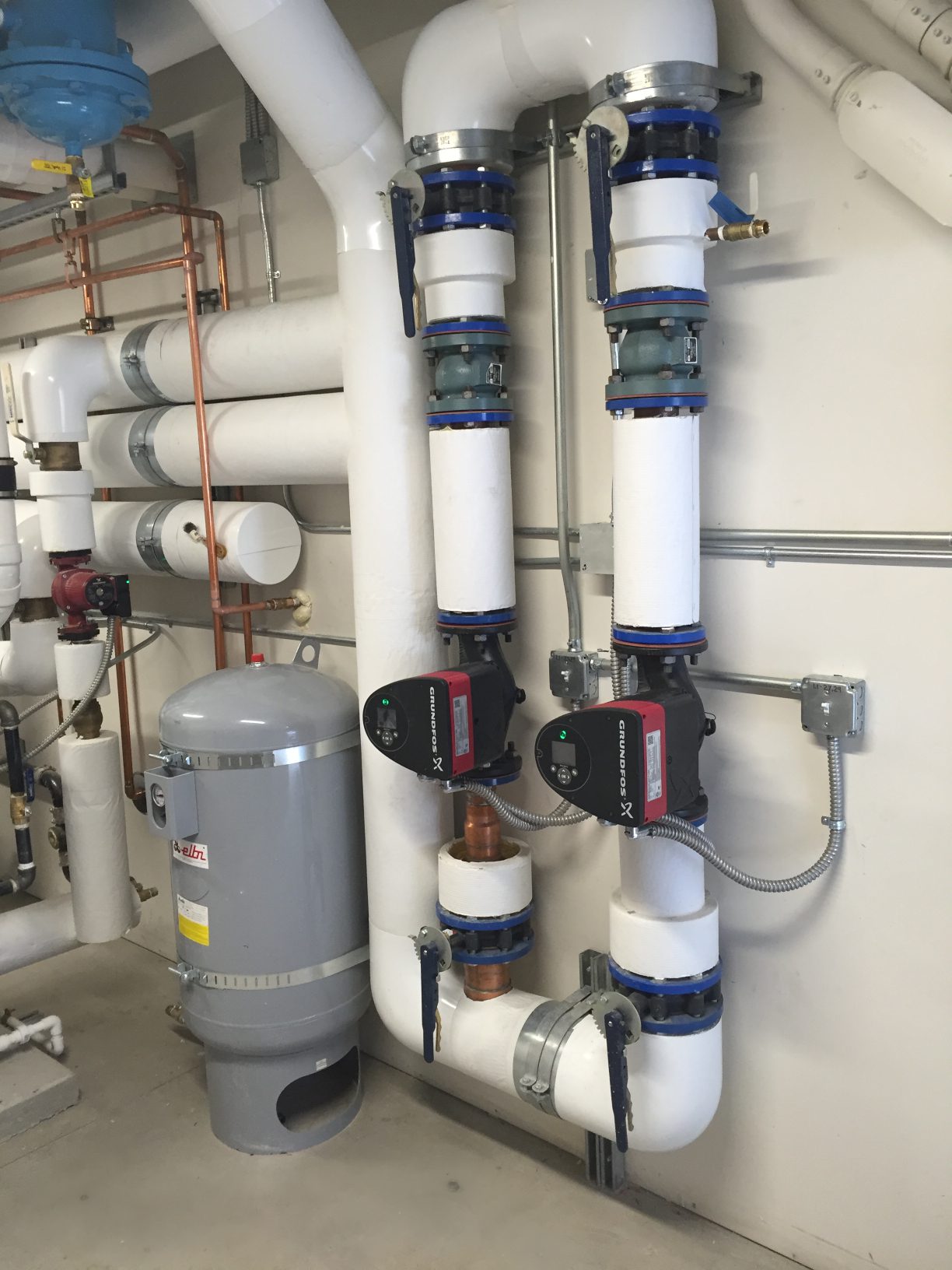Boiler Replacement:
Below are several things that will help you when considering and executing your next Boiler Replacement project. Please remember to contact Efficient Mechanical Systems Engineering to design your next boiler replacement. In addition, we also can act as the Project Manager for the change out and help with obtaining and evaluating bids from contractors, overseeing the project, and commissioning the project.
When should I change out my Boiler? There are several ways to look at this question, and I would like to explore them here.
• Replace on Failure: This approach is based on replacing your boiler when the heat exchanger has completely failed or when a major component (burner, blower, or controller) fails, and the manufacturer no longer makes it. The problem with this method is that it can greatly inconvenience the owner as they will be without heat while the boiler is being replaced. In addition, the owner will pay a premium for the boiler replacement as they will not have time to shop around. I do not recommend that customers use this approach unless they have multiple boilers or a backup heat source (furnace or wood stove).
• Upgrade for Efficiency: With this idea, the boiler system is replaced to upgrade the efficiency of the system. This approach allows the customer to schedule the replacement and thus minimize inconveniences. With today’s high fuel costs, this is a great way to lower your monthly operating costs and replace the equipment before a complete failure. However, it is critical that the system be designed, installed, and set up correctly to maximize the system efficiency. On many of my boiler replacement designs, the customer has been able to realize substantial energy savings that resulted in a simple payback of less than 5 years.
• Replace as the Equipment nears the end of its Useful life: With this approach, the boiler is replaced before it completely fails, but near the end of its life. This approach allows the customer to schedule the work and avoid inconveniences. The difficult thing with this approach is determining when the boiler has reached the end of its useful life. In most instances, a boiler will last 30 plus years with proper maintenance. The boiler will undoubtedly need some components replaced during this life span.
What time of year should I change out my Boiler?
• In the Late Spring, Summer, or Early Fall: June, July, August, and September are typically the best months to complete a boiler changeout because the boiler isn’t needed to keep the building and occupants warm.
• When it is convenient: Changing out the boiler when it is convenient and can be scheduled in advance is also a great strategy, especially for industrial boilers that may be used year-round.
When should I start the Changeout Process?
• 6 Months to 12 Months in Advance: Everything takes time, so it is critical to start implementing the changeout process as soon as possible. For a typical boiler changeout, I would expect the system design can take 1 to 2 months. Securing bids from contractors can take up to 1 month. Waiting for equipment and fitting into the contractor’s schedule can take 2 to 3 months.
How long does it take to Change the boiler?
• 2 Weeks up to 3 Months: This is greatly dependent on the type of boiler and how much of the system is being installed. If it is a small boiler system, it can take 1 to 2 weeks for a contractor to changeout the boiler and get the project complete. If it is a larger boiler system, it can take a contractor several months to complete the entire project.

Please remember to contact Efficient Mechanical Systems Engineering today for help with all steps of a Boiler Replacement Process. We have over 21 years of experience designing and managing Boiler Replacement Projects for Residential, Commercial, and Industrial Properties.






One response to “Boiler Replacement”
I was very pleased to uncover this great site. I need to to thank you for ones time for this fantastic read!! I definitely appreciated every bit of it and I have you bookmarked to look at new information on your blog.